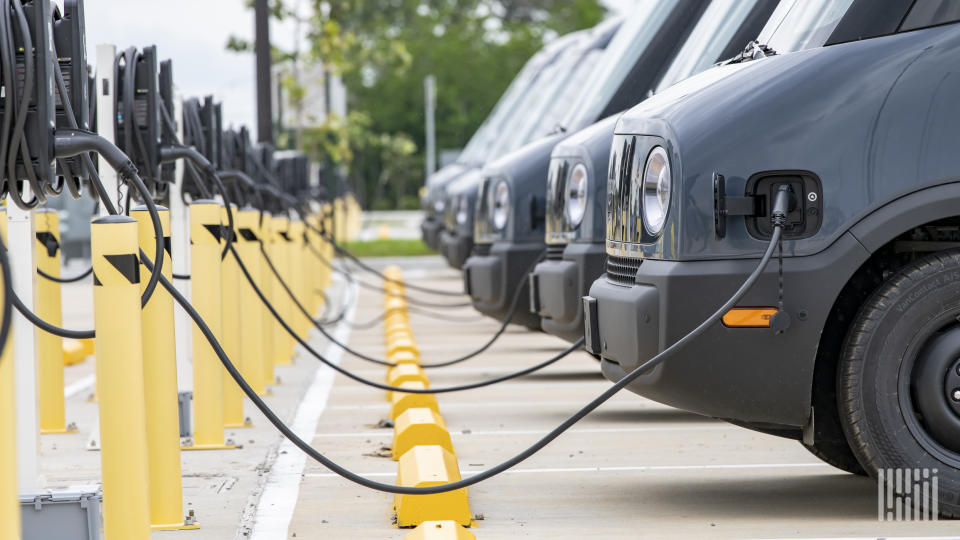FMCSA urged to factor electric trucks into detention study

WASHINGTON — A study by federal regulators aimed at reducing truckers’ detention time should take into account the time it will take to recharge an electric truck, according to an insurance group.
In comments filed with the Federal Motor Carrier Safety Administration, the National Association of Mutual Insurance Cos. (NAMIC), which supports FMCSA’s effort, said the insurance industry can provide the agency with recommendations — especially regarding zero-emission trucks — on “specific metrics, key performance indicators, and measures of success” as FMCSA plans the study.
“A number of states have adopted or are considering adopting requirements for [commercial motor vehicles] to be electric,” wrote NAMIC General Counsel Thomas Karol. “California may require half of all heavy trucks sold by 2035 to be electric. The impact of electric trucks on detention time may be substantial. Electric trucks are typically charged with a DC fast charger either overnight, at a warehouse destination, or on-the-move along highways.”
Karol noted that in addition to the estimated 30 minutes to eight hours, depending on the scenario, of actual charging time, “there is often time required to drive to and from the charging sites, as well as potential waiting time if another truck is already using the charger.”
NAMIC’s emphasis on considering electric trucks in a driver detention study could become more significant as the Biden administration readies a final rule on heavy-duty truck emissions, which could require truck makers to start phasing in electric trucks within three years.
The Truckload Carriers Association, in its own comments filed with the agency on the proposed study, pointed out that studies conducted by FMCSA since 2001 have already shown truck driver detention time to be a “prominent instigator” for making roads more dangerous.
The problem, however, is that FMCSA has failed to act on the results of those studies, according to TCA.
“While we appreciate the FMCSA’s commitment to further investigating issues related to detention time, we are concerned about potential delays in addressing new issues that may be identified,” wrote TCA President Jim Ward. “We are apprehensive that any new issues that arise may not be promptly explored, potentially leading to significant delays, like the decade-long interval observed in the past.”
Delays in loading and unloading, along with access to restrooms at shipper facilities, ranked No. 5 among commercial drivers in a survey conducted last year by the American Transportation Research Institute.
ATRI wants to add to the government’s study on detention time — and update its own 2019 analysis on the issue — with new research. It has issued a call for data on detention experiences at customer facilities, and encourages drivers to complete a short, confidential survey that can be accessed here.
The survey, which will remain open through April 26, asks truck drivers to share details “on their experience with driver detention and how it impacts their day-to-day life, professional livelihood and perceptions of the industry,” according to ATRI.
Related articles:
Click for more FreightWaves articles by John Gallagher.
The post FMCSA urged to factor electric trucks into detention study appeared first on FreightWaves.
